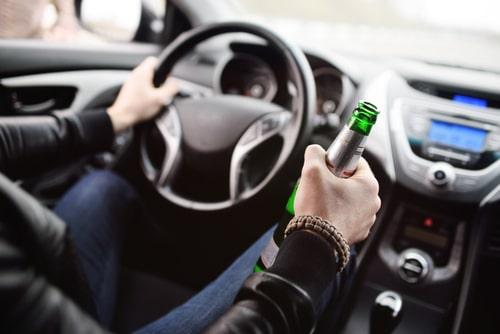Can I Get Out of a Second OVI in Medina?
 Drunk driving convictions can lead to significant consequences – both criminally and personally. The criminal penalties associated with drunk driving increase if the defendant has previously been convicted of operating a vehicle under the influence (OVI). First-time OVI offenders in Ohio are subject to fines of up to $1,075, a maximum driver’s license suspension period of three years, and three days to six months in jail.
Drunk driving convictions can lead to significant consequences – both criminally and personally. The criminal penalties associated with drunk driving increase if the defendant has previously been convicted of operating a vehicle under the influence (OVI). First-time OVI offenders in Ohio are subject to fines of up to $1,075, a maximum driver’s license suspension period of three years, and three days to six months in jail.
If someone receives a second OVI within ten years of the first OVI, he or she may face penalties including fines up to $1,625, a maximum seven-year driver’s license suspension, and ten days to six months in jail. The driver may also be required to complete alcohol addiction treatment. The penalties are harsher if the driver’s blood alcohol limit was above 0.17 percent. If you have been charged with a second or subsequent OVI charge, it is important to start building a strong defense.
Defense Strategies for Drunk Driving in Ohio
Being charged with OVI or DUI does not necessarily mean that you will be convicted of the charge. As with any criminal charge, the prosecution must prove that you committed the crime “beyond a reasonable doubt.” Your lawyer may use many different strategies to cast doubt on your guilt. He or she may argue:
-
No Probable Cause for Traffic Stop or Arrest - Often, OVI charges result from a traffic stop. Police pull a driver over, discover signs of intoxication, and make a drunk driving arrest. The Fourth Amendment to the U.S. Constitution protects citizens from unreasonable search and seizure. Consequently, police must have a valid reason for pulling a driver over. If your attorney can show that there was no probable cause for the initial traffic stop, any evidence obtained during the stop may be inadmissible. Police must also have probable cause to arrest someone on suspicion of drunk driving. If there is not enough evidence to warrant the arrest, the OVI charges may be dismissed.
-
Unreliable Field Sobriety Test – Field sobriety tests are used by police to test suspects for signs of intoxication. However, injuries, medical conditions, and other factors can make these tests inaccurate. For example, if you have a medical condition that causes vertigo, you may be unable to balance on one foot even if you are sober.
-
Inaccurate Chemical BAC Test – Often, the results of a chemical blood alcohol content (BAC) test are a crucial piece of evidence in an OVI case. However, BAC tests including blood tests and breath tests are not always accurate. Blood samples that are not stored properly may become contaminated. Breath testing devices that are not calibrated or cleaned may yield false positives.
Contact a Brunswick Drunk Driving Defense Attorney
If you or a loved one are facing a second OVI, contact the The Law Office of Whitney K.S. Miller, LLC for help. Call our Medina County criminal defense lawyers at 330-725-4114 today. We offer free consultations in most cases.
Source:
https://www.bmv.ohio.gov/susp-ad-first-offense.aspx




